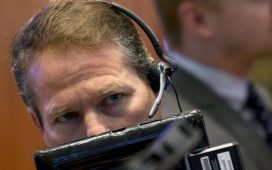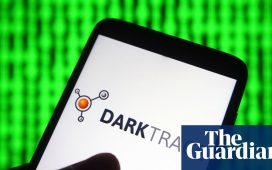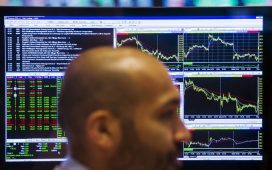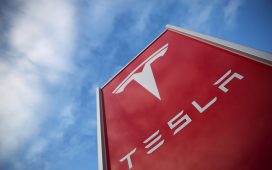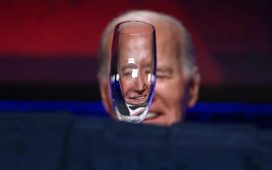Bitcoin, gold, the US stock market, the German stock market, even the Japanese stock market after 34 long years. Is there anything not hitting all-times? Well, there’s the tech-lite FTSE 100 index, still plodding along 500 points below its high of early last year, but it’s an outlier. The rest of the investment world is feeling the adrenalin rush of interest rate cuts in the offing and talking about the revolution in artificial intelligence. At which point, it’s worth asking whether this is all getting a bit speculative. Isn’t excitement over the transformative effects of AI, which won’t happen overnight, already overdone?
The S&P 500 index has been hitting new highs in most weeks this year and is up 27% over 12 months. As is well-known by now, by far the largest contribution has come from six of the so-called “Magnificent Seven” tech stocks – Alphabet (Google), Amazon, Apple, Meta (Facebook) Microsoft and, especially, chipmaker Nvidia. (Tesla, the other member of the group, is the laggard).
New highs for stock market indices tell us little in themselves, of course. Schroders’ strategists recently crunched the numbers on the US market since 1926 and showed that all-times highs were seen in 30% of months. Yet Marko Kolanović, JP Morgan’s chief market strategist, was also expressing a widely-held worry on Tuesday when he wrote: “Stocks continuing to push to new record highs and Bitcoin surging over $60k may indicate accumulating froth in the market.”
The phrase “accumulating froth” is nicely nuanced since it includes the possibility that current conditions could last a lot longer. But the concentration in the group of US leaders, which now make up 25% of the US market, is so extreme that we have, in effect, two markets. The Magnificent Seven have just produced a collective 56% increase in earnings in their latest reporting periods, noted Kolanović, while the rest of the S&P 500’s companies were down 2% in aggregate. “So currently, we have the uncomfortable choice of buying something already expensive, albeit with good earnings growth, or something cheap, perhaps justifiably so with negative earnings growth.” It’s not obviously an appealing choice.
Within the group of Seven, Nvidia is a tale in itself. It’s up 75% this year – yes, since the start of January – after a 230% gain in 2023. Its market capitalisation is now over $2tn, so more than both Alphabet and Amazon. And it’s predicated on the thesis that Nvidia’s processing chips will be the essential ingredient for running generative AI models. Chief executive, Jensen Huang, spoke last month about AI hitting “a tipping point” with surging demand “across companies, industries and nations”.
Few would quibble with the tipping point analysis: the AI revolution is clearly real, just as the internet-inspired transformation of the economy was 25 years ago. But the investment question – less discussed – is surely whether the current leaders will have the field to themselves.
Terry Smith, manager of the Fundsmith fund, made an excellent point in his recent report to investors when he said it would be “a break with tradition” if the stock market has been able to identify the winners from AI in advance. He pointed to a long list of early leaders that tripped up last time in the dotcom era: AOL in internet service provision; Nokia in mobile phones; Yahoo in search engines; and Research In Motion, aka Blackberry, in smartphones.
It is also possible, Smith suggested, that there won’t be a single winner, either in the provision of large language models or their use, because there’s no shortage of contenders. “The adoption of AI may lead to a situation where everyone has it, so no one has any advantage,” he argued. Yes, that is also possible.
Such scepticism is not the mood of the market at the moment, however. We are at the stage where the only part of the story that resonates is the fact that the changes will be enormous. It’s a simple thesis, which is partly why it is compelling. Trying to call the top is a mug’s game, so there’s no point trying (Federal Reserve chairman Alan Greenspan made his famous remarks about “irrational exuberance” in December 1996, a full three years before the dotcom bubble finally burst). But, yes, it’s starting to feel frothy.

